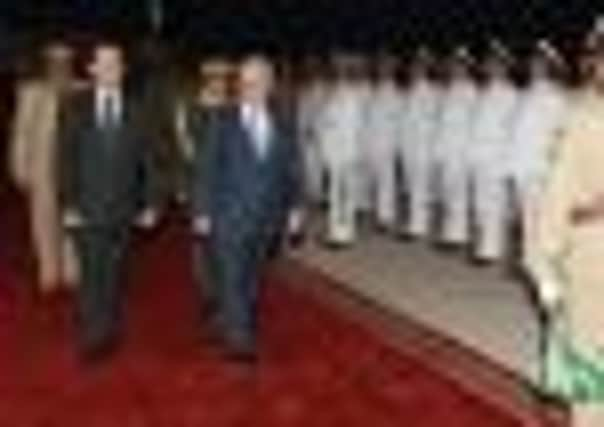Absences within Iraq summit shows sectarian tensions within Arab world


As the summit opened in a former palace of ousted dictator Saddam Hussein, the powerful Sunni monarchs of Saudi Arabia, Qatar, other Gulf nations and Jordan and Morocco were absent.
The only ruler from the Gulf to attend was the emir of Kuwait, Sheik Sabah Al Ahmad Al Sabah.
Advertisement
Hide AdAdvertisement
Hide AdOne of the key reasons for the absences was the Gulf leaders’ deep distrust of Iraq’s Shia-dominated government, which they believe is a proxy for Iran.
Qatar’s prime minister said the lower representation was a protest at what he called the Baghdad government’s marginalisation of Iraq’s Sunni Muslim minority.
Arab leaders in the Gulf want tough action to stop the Syrian regime’s bloody crackdown on the opposition, with their eye on ultimately bringing down President Bashar Al-Assad.
However, Iraqhas resisted any strong measures by the Arab League on Syria, with its foreign minister Hoshyar Zebari saying he was opposed to foreign intervention there.
The summit is the first held by the 22-member League since the Arab Spring revolts began more than a year ago. The turmoil forced the cancellation of last year’s summit.
Since then, four perennials of the summit have been swept from the scene - Egypt’s Hosni Mubarak, Yemen’s Ali Abdullah Saleh, Tunisia’s Zine El Abidine Ben Ali and Libya’s Colonel Muammar Gaddafi.
The new leaders of Tunisia and Libya were among the ten heads of state who attended, but Egypt and Yemen sent lower-level figures, a reflection of domestic turmoil.
The leader of Libya’s National Transitional Council, Mustafa Abdul-Jalil, spoke of the “scenes of torture and slaughter committed by the Syrian regime against our brothers and sisters in Syria.”
Advertisement
Hide AdAdvertisement
Hide AdArab League chief Nabil Elaraby called on the Syrian regime to immediately implement a plan put forward by UN-Arab league envoy Kofi Annan and warned that the world was running out of patience with its failure to move toward a solution.
Iraqi president Jalal Talabani said Iraq rejected violence and bloodshed in Syria and called for a peaceful solution to end the conflict there and, echoing the language found in a draft communique from the summit, said the Syrian people had a legitimate right to freedom and democracy.
“The Syrian government is required today to listen to the voice of reason and wisdom and stop all kinds of violence,” said the emir of Kuwait.
Iraq had hoped that hosting the summit – its first Arab summit since 1990 – would herald its return to the Arab fold after two decades of isolation.
But the absences and the ability of militants to launch attacks despite a massive security operation – a mortar hit an area not far from the summit’s venue as the meeting started – suggest that Iraq may still have some way to go before it could fully return to normalcy and reintegrate into the Arab world.
Shias have dominated Iraq since the 2003 ousting of Saddam Hussein, a Sunni. The nation’s once powerful Sunnis complain that the Shia-led government of prime minister Nouri al-Maliki is unfairly concentrating power in the hands of Shias.
There is a growing desire in Sunni-majority provinces to win autonomy as a way to escape Shia domination.
Tens of thousands of Iraqis died in the sectarian violence that began shortly after Saddam’s fall but peaked in 2006 and 2007.